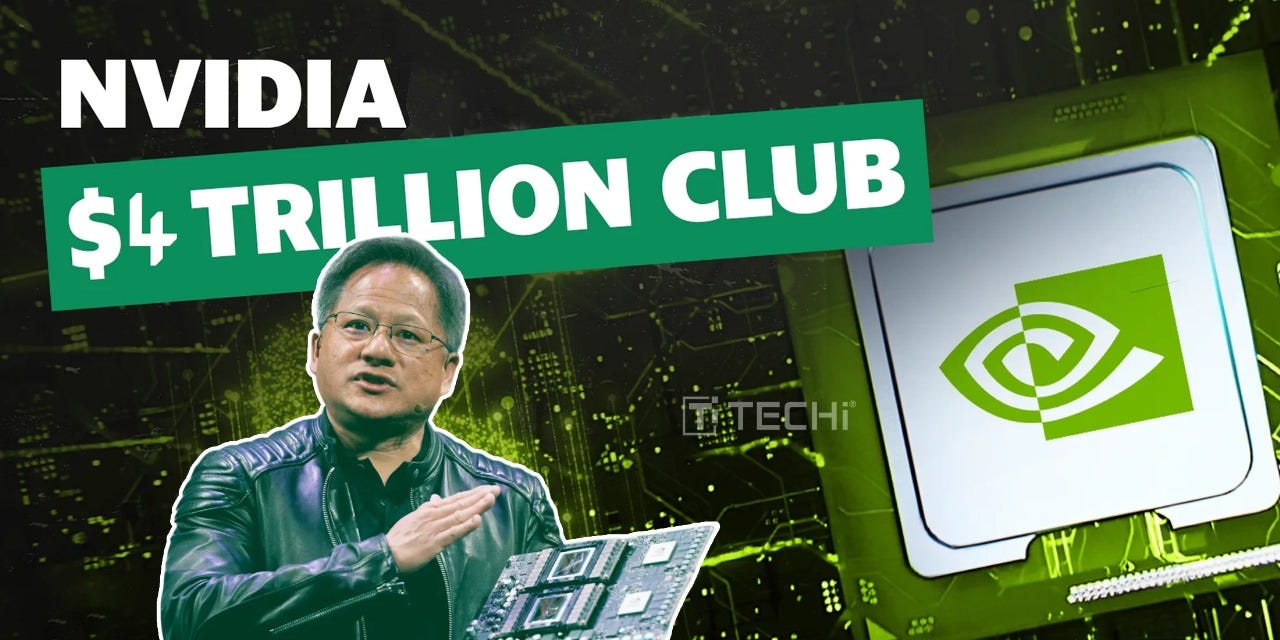Nvidia Breaks Records: A $4 Trillion Market Capitalization and What It Means for the Future of Technology and Business
How Nvidia Became the World's First $4 Trillion Company — And What It Means for the Future of AI, Infrastructure, and Operational Excellence
Welcome to my unique weekly article for the paid subscriber-only edition. This is the extended version for paid subscribers, thanking you for your support of our magazine.
Outlines and Key Takeaways
The Rise of Nvidia: From Gaming to Global Dominance
Why the $4 Trillion Milestone Matters
Operational Excellence and Strategic Execution
Implications for Professionals and Enterprises
Lessons Learned from Nvidia's Journey
What’s Next?
Nvidia’s Business Model: The Engine Behind the $4 Trillion Giant
Why Nvidia Became the No.1 Company in the World
Nvidia's Next Chapter: A 5–10 Year Forecast
Operational Excellence Implications
In a landmark moment for global markets, Nvidia has officially become the first company in history to reach a $4 trillion market capitalization. This milestone marks a powerful inflection point in the business world—redefining not only what is possible in terms of valuation but also reshaping the global narrative around AI, semiconductors, and the digital economy.
So what exactly does this moment mean for professionals, business strategists, and investors alike? Let’s unpack this historic achievement from multiple angles.
The Rise of Nvidia: From Gaming to Global Dominance
Founded in 1993 by Jensen Huang, Chris Malachowsky, and Curtis Priem, Nvidia began as a niche GPU (graphics processing unit) manufacturer primarily catering to the gaming industry. Fast forward to 2025, Nvidia has positioned itself as the heartbeat of the AI revolution, with its chips powering everything from autonomous vehicles and supercomputers to generative AI models like ChatGPT and Gemini.
Its transformation can be attributed to:
Early and aggressive investment in AI hardware, especially with CUDA and its A100/H100 chips.
Strategic alignment with major tech trends, including cloud computing, autonomous vehicles, and data centers.
Vertical expansion into software, creating an ecosystem beyond just chips.
Why the $4 Trillion Milestone Matters
Reaching a $4 trillion market cap is more than a headline—it’s a signal to markets, governments, and industries worldwide. Here's why it matters:




